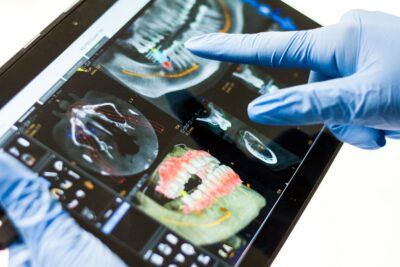Revolutionizing Emergency Response
Artificial Intelligence (AI) is revolutionizing the field of emergency medical services (EMS) in Saudi Arabia and the UAE by enhancing efficiency and responsiveness. In fast-paced environments where every second counts, AI-driven systems can analyze vast amounts of data to assist healthcare professionals in making critical decisions swiftly and accurately. From predicting patient outcomes based on vital signs to optimizing ambulance routes for faster arrival times, AI is reshaping the way EMS operates, ultimately saving lives in emergencies. By leveraging machine learning algorithms and real-time data integration, EMS providers can deliver more effective and timely care to individuals in need, ensuring better outcomes and improved patient experiences.
Optimizing Resource Allocation
One of the key challenges faced by EMS providers is resource allocation, particularly during peak demand periods or large-scale emergencies. AI offers solutions to optimize resource allocation by predicting demand patterns, identifying high-risk areas, and allocating personnel and equipment accordingly. For example, AI-powered triage systems can prioritize incoming emergency calls based on severity, directing resources to the most critical cases first. Additionally, predictive analytics can anticipate spikes in demand, enabling EMS agencies to preposition ambulances and personnel in strategic locations to reduce response times and improve overall system efficiency. By harnessing the predictive capabilities of AI, EMS providers can better manage resources and ensure a timely response to emergencies across urban and rural areas.
Empowering Healthcare Professionals
Beyond operational improvements, AI empowers healthcare professionals in EMS with valuable decision support tools and real-time insights. AI algorithms can assist paramedics and emergency physicians in diagnosing conditions, identifying appropriate treatments, and monitoring patient progress remotely. By integrating AI into EMS workflows, healthcare professionals can access up-to-date medical knowledge, clinical guidelines, and best practices at their fingertips, enhancing their ability to deliver high-quality care in challenging situations. Furthermore, AI-enabled communication platforms facilitate seamless collaboration between EMS teams, hospitals, and other healthcare stakeholders, ensuring coordinated care delivery and continuity across the healthcare continuum. As AI continues to evolve, its role in EMS will only become more prominent, driving innovation and improving outcomes for patients in critical situations.
Transforming Patient Care
AI-powered technologies are transforming patient care in emergency medical services by enabling proactive interventions and personalized treatments. Machine learning algorithms can analyze patient data in real-time, identifying subtle changes in vital signs or symptoms that may indicate deterioration. This early warning system allows healthcare providers to intervene promptly, potentially preventing adverse outcomes or complications. Moreover, AI-driven decision support tools can assist clinicians in tailoring treatment plans to individual patients, taking into account factors such as medical history, comorbidities, and medication profiles. By leveraging AI to personalize patient care, EMS providers can optimize outcomes and enhance patient satisfaction while minimizing the risk of medical errors.
Enhancing Dispatch and Triage
Efficient dispatch and triage processes are critical components of effective emergency medical services. AI algorithms play a crucial role in streamlining these processes by automating call prioritization, resource allocation, and dispatch decisions. By analyzing historical data, AI systems can predict the likelihood of specific emergencies based on factors such as time of day, weather conditions, and geographical location. This predictive capability enables EMS agencies to allocate resources more effectively, ensuring that ambulances are dispatched to the right place at the right time. Additionally, AI-powered triage tools can assist call takers and dispatchers in assessing the urgency of incoming calls, facilitating faster response times and improved outcomes for patients in need.
Fostering Continuous Improvement
The integration of AI into emergency medical services fosters a culture of continuous improvement and innovation. By collecting and analyzing vast amounts of data from disparate sources, AI systems can identify trends, patterns, and areas for optimization within EMS operations. This data-driven approach enables EMS agencies to make evidence-based decisions, refine protocols, and implement targeted interventions to enhance performance and patient care quality. Furthermore, AI facilitates ongoing learning and skill development among healthcare professionals by providing access to educational resources, training modules, and real-world case studies. Through collaboration with technology partners and research institutions, EMS organizations can leverage AI to drive innovation and stay at the forefront of healthcare delivery, ultimately improving outcomes for patients and communities alike.
#AIinEMS #EmergencyMedicalServices #HealthcareInnovation #ArtificialIntelligence #PatientCare #MedicalTechnology #PredictiveAnalytics #ResourceAllocation #HealthTech #HealthcareAI























